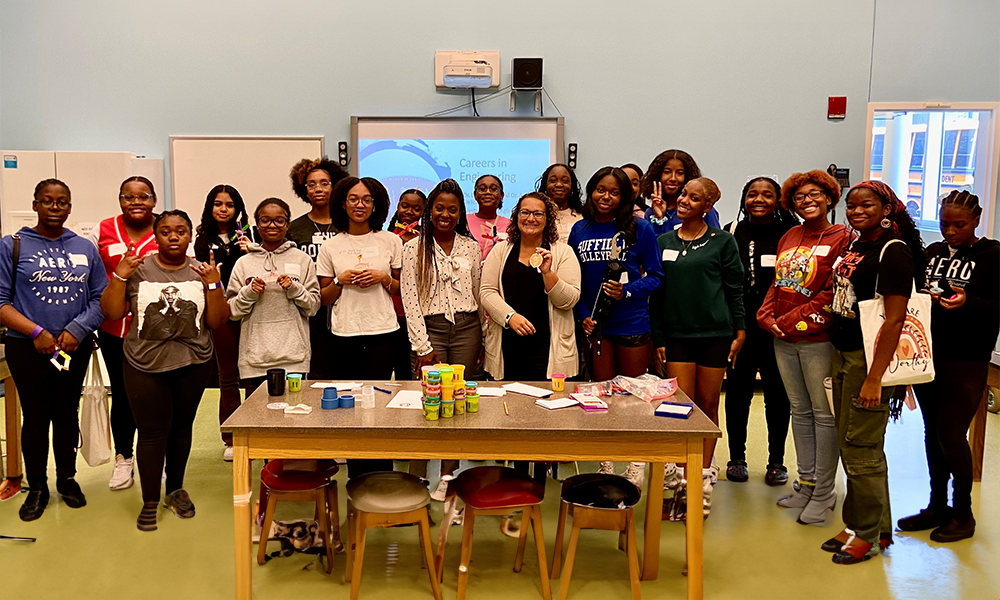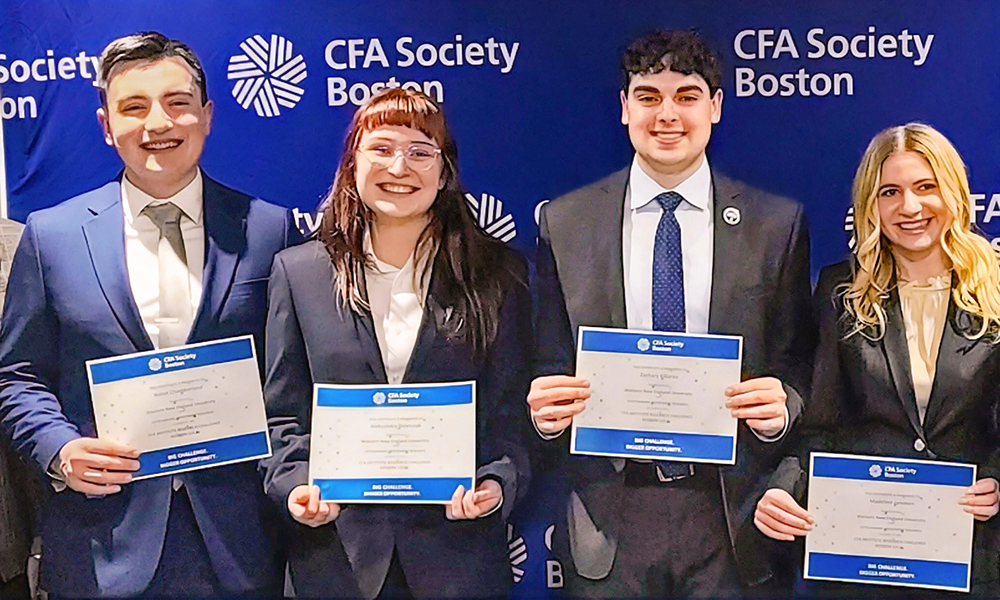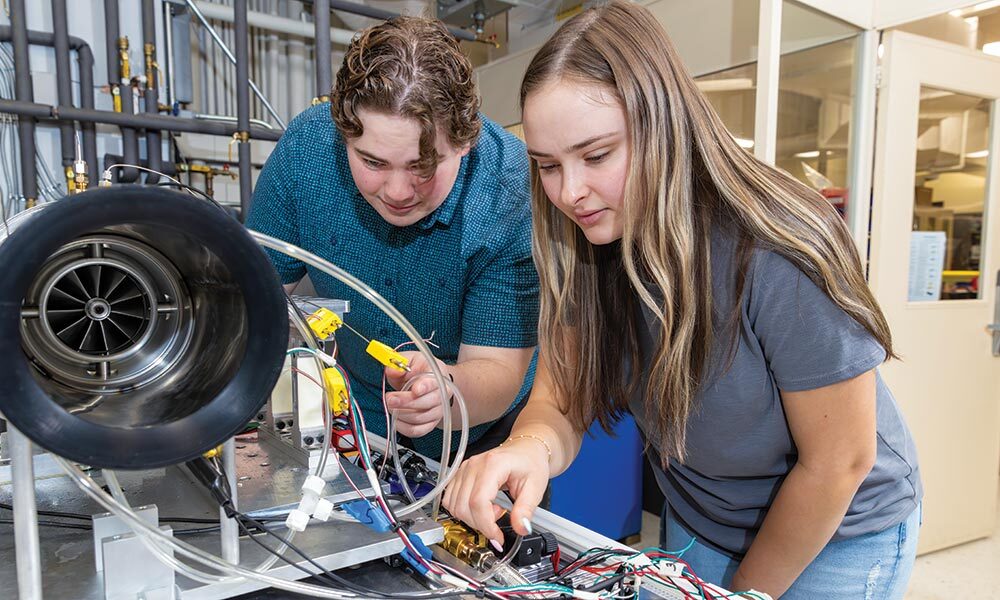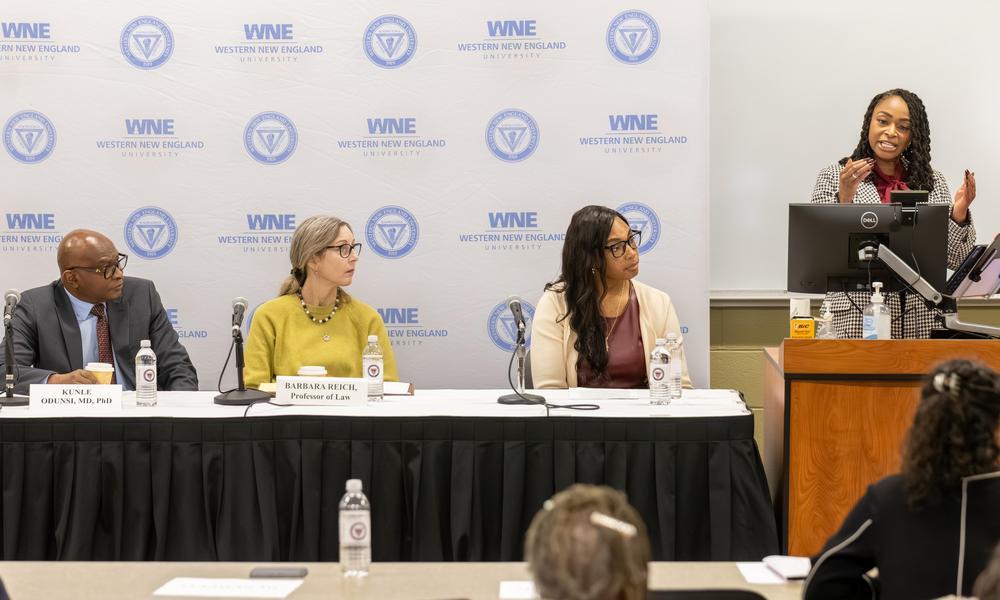In a commitment to education and to promote diversity in the field of engineering, Western New England University (WNE) professors, Dr. Lisa Murray and Dr. Andrea Kwaczala organized a transformative workshop for underrepresented girls from the Hartford, CT region.
Dr. Murray and Dr. Kwaczala joined forces for a day-long workshop filled with innovation and hands-on learning to educate students on design thinking and additive manufacturing. As part of their collaborative efforts, they orchestrated an engaging experience that showcased career opportunities within the field of engineering. The event took place on July 26, with the professors' leaving an indelible mark on both the participants and the field itself.
"The focus of the workshop was to encourage young girls to envision themselves as future engineers, opening their eyes to the world of possibilities that await them in the engineering industry," said Dr. Kwaczala. "We need to increase the pipeline of underrepresented people into the field and these workshops are our best chance to help promote engineering as a career to young people who are at the point of considering college and potential degrees to pursue."
The event is part of the Women in Science program hosted at the Connecticut Science Center. The mission of the program is to encourage girls and young women to pursue studies and career paths in science, technology, engineering, and math (STEM) and celebrates the achievements of women in the sciences. The initiative seeks to bridge the gender gap in STEM by developing original programming to engage girls in science and to build a community of women in the sciences. The workshop saw an enthusiastic turnout, with 26 students immersing themselves in the day's activities.
Dr. Murray, an expert in additive manufacturing, demonstrated her expertise in this cutting-edge field by guiding the participants through the creation of their personalized keychains to learn how manufactured parts are made through additive or subtractive techniques. She helped students delve into the world of manufacturing while they learned about laser cutting and 3D printing. Through hands-on experiences and engaging discussions, the participants developed practical skills and expressed their individuality through personalized keychains made using engineering technologies.
Dr. Murray and Dr. Kwaczala's dedication to fostering diversity and inclusion in engineering was evident throughout the workshop. By providing a space where young girls can explore, experiment, and engage with engineering concepts, they dismantled stereotypes and showcased the breadth of opportunities available in the field. The girls realized that engineering could be fun and creative, where design can help them express their own interests while still engaging with science!
"When these young women of color identify us as role-models in engineering, speaking passionately about our own experiences in the field, it helps them believe that this future is possible for them, too. It shows them a real pathway towards an education in STEM. It was truly inspiring to witness the curiosity and enthusiasm of these young girls as they learned about engineering," said Dr. Murray. "By showing them how tangible and exciting engineering can be, we hope to encourage a new generation of innovators who will drive positive change in our world."
Their collaborative effort is a testament to WNE's commitment to nurturing talent and creating a future where women play a pivotal role in shaping the technological landscape. The success of the workshop at the Connecticut Science Center serves as an example of optimism for the future of engineering, where diversity and innovation go hand in hand.
As Western New England University continues to prioritize initiatives that foster inclusivity and empower aspiring engineers, Dr. Murray and Dr. Kwaczala's collaborative efforts stand as a remarkable example of academia making a real-world difference.





